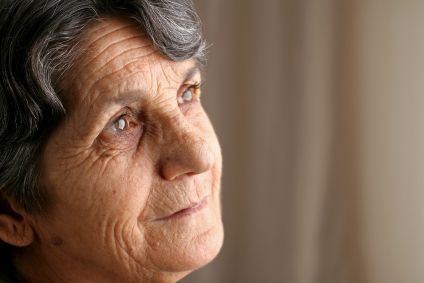Source:By Francine Russo, TIME,
When my mother’s health was failing, I was the “bad” sister who lived far away and wasn’t involved. My sister helped my parents. She never asked me to do anything, and I didn’t volunteer. I was widowed, raising kids and working, but that wasn’t really why I kept to weekly calls and short, infrequent visits. I was stuck in my adolescent role as the aloof achiever, defending myself from my judgmental mother and other family craziness. As always, I deflected my sister’s digs about my not being around more — and I didn’t hear her rising desperation. It wasn’t until my mom’s funeral, watching my dad and sister cling to each other and weep, that I got a hint of their long ordeal — and how badly I’d screwed up.
My sister was so furious, she barely spoke to me during my father’s last years. Honest, I’m not a terrible person. So how did I get it so wrong? (See how to prevent illness at any age.)
We hear a lot about the costs of taking care of our graying population. But the big story roiling beneath the surface is the psychological crisis among middle-aged siblings who are fuming or fighting over issues involving their aging parents. According to a new survey by the AARP- and MetLife-funded National Alliance for Caregiving, an estimated 43.5 million adults in the U.S. are looking after an older relative or friend. Of these, 43% said they did not feel they had a choice in this role. And although 7 in 10 said another unpaid caregiver had provided help in the past year, only 1 in 10 said the burden was split equally.
As siblings who are often separated geographically and emotionally, we are having to come together to decide such thorny issues as where Mom and Dad should live and where they should be buried. “It’s like being put down with your siblings in the center of a nuclear reactor and being told, ‘Figure it out,’ ” says University of Colorado geropsychologist Sara Honn Qualls. (Comment on this story below.)
Eldercare and end-of-life debates often hit families after decades of negotiating nothing more serious than where to spend Thanksgiving. We can be grownups with successful careers and kids of our own, yet all the old stuff ambushes us: sibling rivalry, entrenched roles and resentments, the way our family talked or didn’t talk about important things.
One two-year study of married women caring for parents with dementia found that siblings were not only the greatest source of help to these caregivers but also the biggest source of interpersonal stress. (See questions about retirement and medicare.)
Friction often stems from parents giving their children different information about how they’re doing. Mom may put on a good show for the out-of-towner, who then discounts what the local sibling says. Annie Groeber, 43, a freelance media producer, used to pop up from Washington to see her mother, who would make light of her many health problems. So until Groeber moved to Baltimore to help out more, she had trouble believing what her sister said about their mother’s deteriorating condition or the personality changes caused by her medications. “Tracey would say, ‘You have no idea what this is like,'” Groeber recalls. “Within a couple of weeks of my moving, I said to her, ‘You’re right. I had no idea.’ ”
Not all siblings fight, and some become closer during their parents’ twilight years. The Hiatts have managed this period better than most. After years of talks with their five far-flung kids, in 2002 the parents moved from Boise, Idaho, to an assisted-living facility in Eugene, Ore., 10 minutes from Jeanne Walker, the daughter who has had the best relationship with their (often difficult) mother. At 59, Walker works part time as a nurse. Her older brother helps out twice a week, and their three siblings, who live in other states, spend their vacations on parent duty. When their mom complains unrelentingly, Walker calls her siblings to vent. “It makes a difference to me to feel I have their support,” she says. (See the top 10 medical breakthroughs of 2009.) Research shows that emotional support for caregivers is critical to their well-being and to family harmony. Too often, anger on one side leads to guilt and defensiveness on the other, resulting in sibling gridlock. Sometimes a therapist or clergyperson needs to referee family meetings. For status updates, Patricia Mulvey, a geriatric-care manager in New York, favors simultaneous e-mails. “That way,” she says, “Susie won’t hear it before Joey, and that can reduce tension.”
As for me, I became more present for my father in his last years. After he died, I apologized to my sister. And so, in our imperfect way, we remain “family” and sometimes even laugh over a childhood memory that, now that our parents are gone, we are the only people on earth who share.
You Are Married With an Estate Worth Less Than $3.5 Million
There won’t be any federal estate tax hit if you die today, and there would not have been one had you died last year. We can only hope the same will be true if you die next year. In any case, you don’t need any tax-saving estate plan right now. But if your plan was set up several years ago, I recommend checking in with your estate planning pro to make sure your house is still in order. You don’t need to run. You can walk.
Russo, a contributor to TIME since 1999, is the author of the new book They’re Your Parents, Too! How Siblings Can Survive Their Parents’ Aging Without Driving Each Other Crazy (Bantam; 304 pages)

